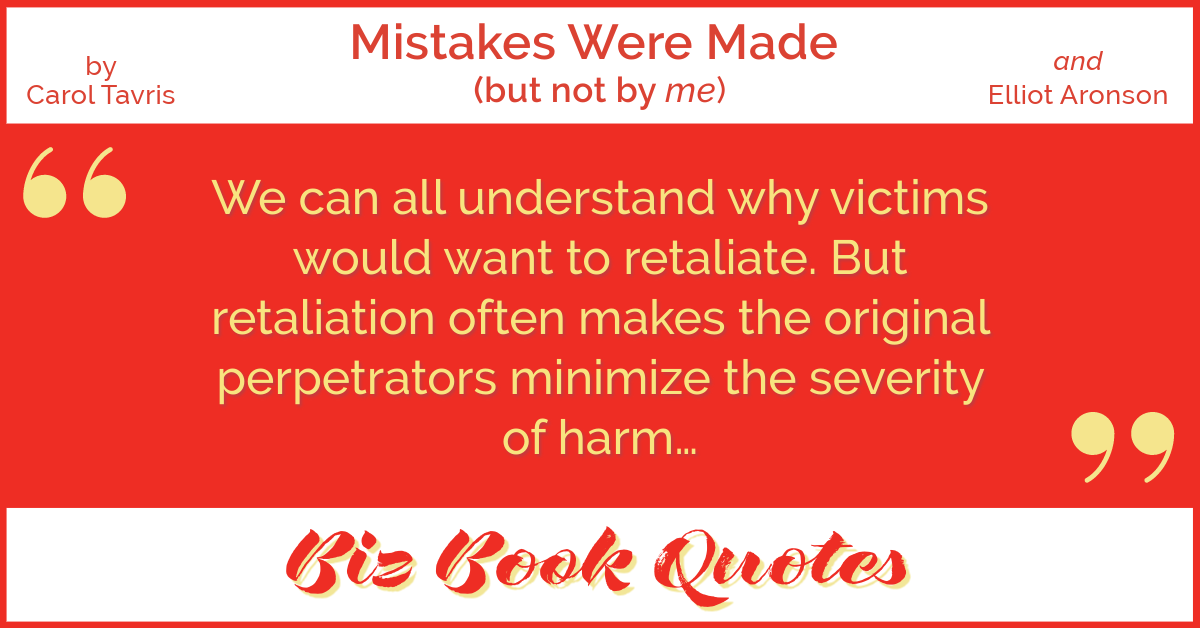 |
We can all understand why victims would want to retaliate. But retaliation often makes the original perpetrators minimize the severity of harm…
|
267 |
 |
Once we understand how and when we need to reduce dissonance, we can become more vigilant about the process and often nip it in the bud, catching ourselves before we slide too far down the pyramid.
|
300 |
 |
Understanding how dissonance operates helps us rethink our own muddles, and it’s also a useful skill for helping friends and relatives get out of theirs.
|
307 |
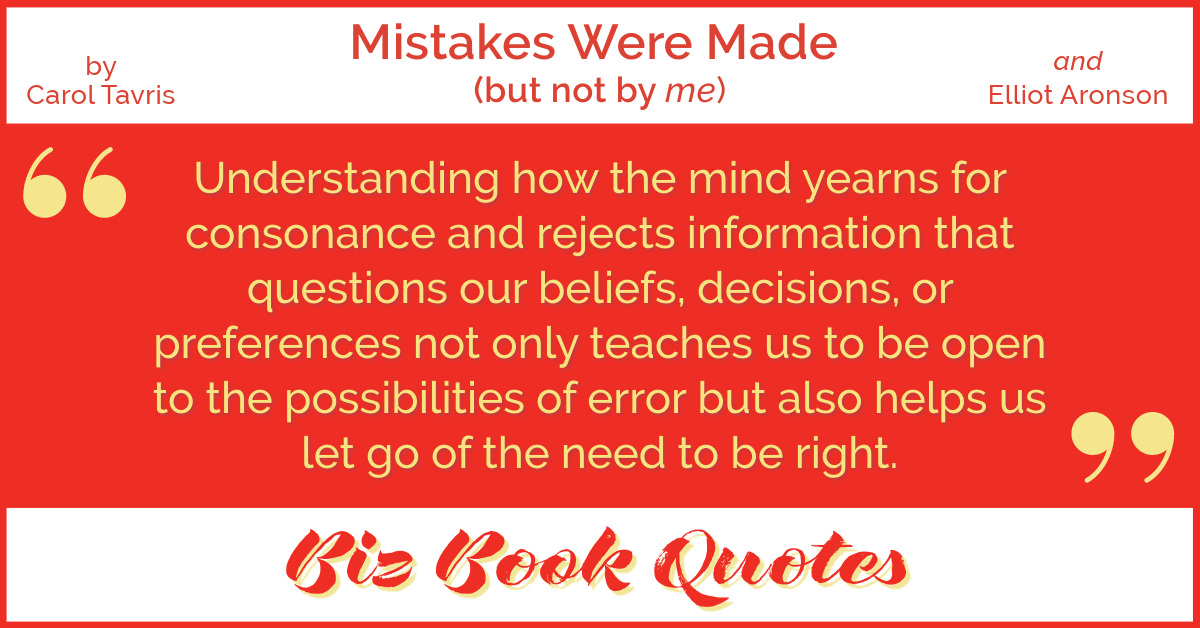 |
Understanding how the mind yearns for consonance and rejects information that questions our beliefs, decisions, or preferences not only teaches us to be open to the possibilities of error but also helps us let go of the need to be right.
|
311 |
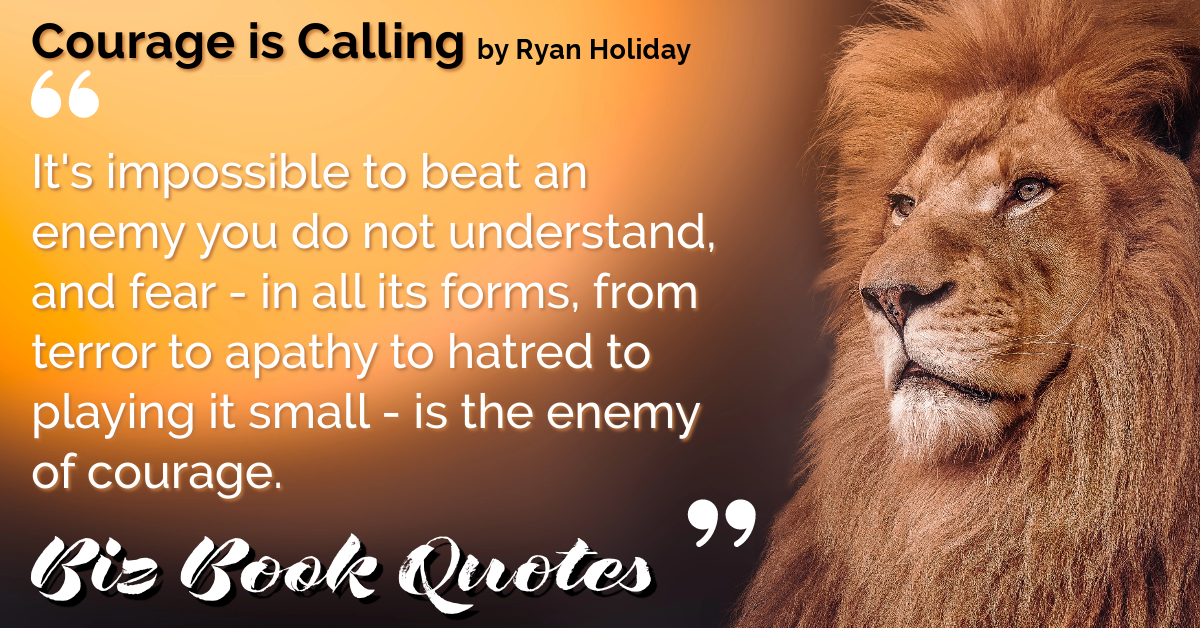 |
It’s impossible to beat an enemy you do not understand, and fear – in all its forms, from terror to apathy to hatred to playing it small – is the enemy of courage.
|
001 |
 |
The night is dark and full of terrors. We face many enemies in life. But you have to understand: They are not nearly as formidable as your mind makes you think.
|
025 |
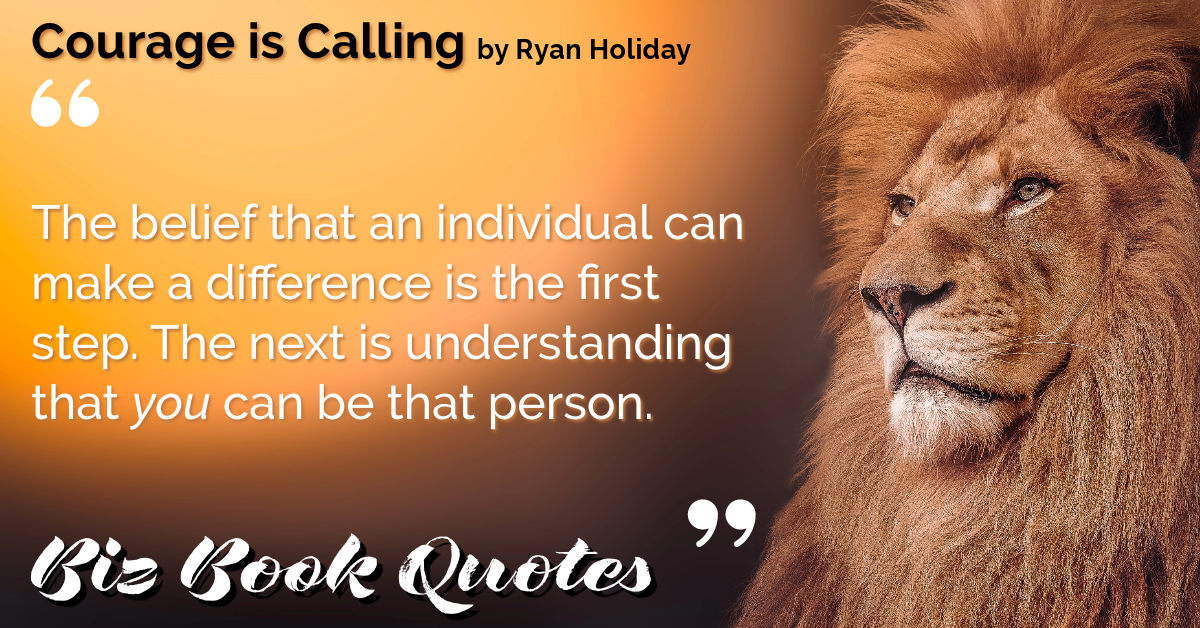 |
The belief that an individual can make a difference is the first step. The next is understanding that you can be that person.
|
100 |
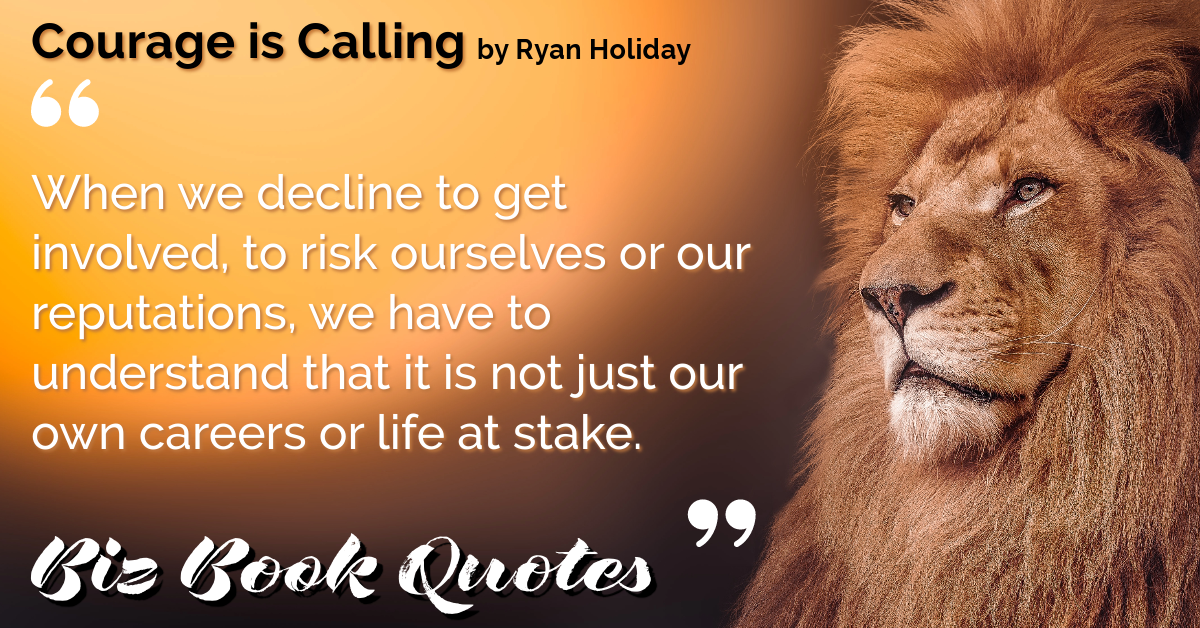 |
When we decline to get involved, to risk ourselves or our reputations, we have to understand that it is not just our own careers or life at stake.
|
246 |
 |
We understand that while there may be some situations that all for a tactical retreat, we never, ever surrender.
|
254 |
 |
Whenever new tools, procedures, or ways of understanding arise anywhere in the culture, they produce ripples that can have far-reaching and unexpected consequences.
|
017 |